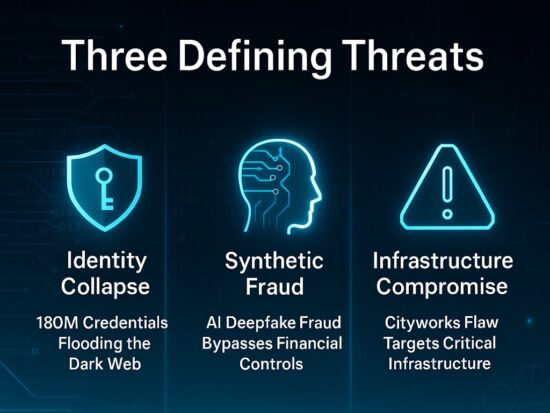Do you realize that during your Mac or PC setup process, there are data collection and sharing consents tailored to track most of the activities you engage in across your digital realm?
When setting up a new Mac or PC, the initial configuration process may appear straightforward. However, amid the excitement of exploring your new device’s capabilities, it is essential to be cautious about the various data collection and sharing consents requested during the setup. As privacy concerns continue to grow in the ever-growing dependency on the digital lifestyle, understanding and making informed decisions about data sharing are crucial for all computer users, regardless of their level of expertise. This article aims to raise awareness and educate both novice and first-time computer users about the significance of safeguarding their privacy during the setup process.
Diagnostics Data Collection
During the setup process, you may encounter prompts requesting permission to collect diagnostic data from your device. While this data can help manufacturers identify and resolve technical issues, as well as improve their software and hardware usability and features, it may also contain sensitive information that you are not aware of. It is advisable to carefully review the data that will be collected and shared and consider limiting the scope to essential diagnostics, balancing potential benefits with privacy concerns.
User Experience Sharing
Some devices may ask for your consent to collect and share user experience data to improve their products and services. Although this data is generally anonymized, it is vital to understand what specific information is being shared and for what purposes. It is also important to read some tinny footnotes that may reveal whether third parties are also granted access to such information and sharing of information to their other parties. If you are uncomfortable with this practice, feel free to decline the request.
Location Information Sharing
Many applications and services require access to your device’s location to provide personalized experiences or services. However, sharing your location indiscriminately can be risky. Be cautious about granting location access to apps unless it is absolutely necessary for their core functionality. During setup process of your PC or Mac, absolutely deny such access so that you can provide access when they are absolutely required in app by app base so that your location information is proactively restricted and you are in control of it.
App-Based Anonymous Data Collection and Sharing
Applications frequently seek consent to gather anonymous data regarding your usage patterns, with the intention of enhancing functionality, adding features, resolving issues, and ensuring timely updates. While this can result in improved services, it is essential to carefully review the type of data being collected and shared. If the data includes personally identifiable information or raises privacy concerns, you have the option to opt-out or explore alternative solutions. Exercise caution if an app indiscriminately attempts to collect data without providing specific disclosures regarding the nature of the data collected, storage practices, and data treatment procedures.
Operating System or App Improvement Data Sharing
Operating systems and apps may ask for your consent to collect data for improvement purposes. While this can lead to better performance and enhanced user experience, ensure that you understand the types of data being collected and shared. If you feel uneasy about this practice, explore privacy settings to control the data sharing or disable it altogether. Should such opt-out come to be counterproductive limiting features and usability of your computer, you can always get back to it from the settings section and toggle the consent on at any later time. Neglecting to take your time during the computer setup process can result in enabling numerous data collection and sharing consents that are turned on by default. This means you will be automatically opted-in, and subsequently, you might find yourself investing significant time and effort trying to figure out how to opt-out later on.
App Store Activities Related Data Sharing
App Store often collects and shares data on your app searches, downloads, purchases, and interactions. While this is often necessary for app developers and publishers to track their success, scrutinize the permissions and privacy policies of the App Store. Familiarize yourself with their data sharing practices and ensure they align with your privacy preferences. You can safely not allow App Store based data collection and sharing consents as such may not be mandatory.
Other Privacy-Related Data Collection and Sharing Consents
During the setup process, you may come across various other data collection and sharing consents related to personalized ads, marketing emails, media tailoring, and similar activities. It is imperative to meticulously review each consent request. If any of them make you uncomfortable, explore the possibility of opting out or weigh the potential privacy trade-offs before proceeding with the setup. Deliberating thoughtfully and adopting a proactive approach during the initial setup process can significantly enhance your privacy protection.
The Final Thoughts Worth A-Million-Dollar
In an ever-evolving digital landscape, ensuring the protection of your privacy has become increasingly crucial, with numerous entities vying to collect comprehensive information about your computer usage – from how, where, and when you use it to the purposes behind your activities. When configuring your Mac or PC, it is essential to invest time in educating yourself about the data collection and sharing consents presented during the setup process. As a computer user, novice, or first-timer, make informed decisions about what data you are comfortable sharing and what you wish to keep private. By exercising caution and maintaining awareness, you can enjoy your new device while proactively safeguarding your digital privacy from the outset.
Always bear in mind that your data is valuable and belongs solely to you, making its protection a fundamental right and your topmost priority. Remember, the consequences of any loss are solely borne by you. To ensure your privacy remains intact, stay well-informed, maintain vigilance, and take charge of your data security at every stage of your computing journey.





